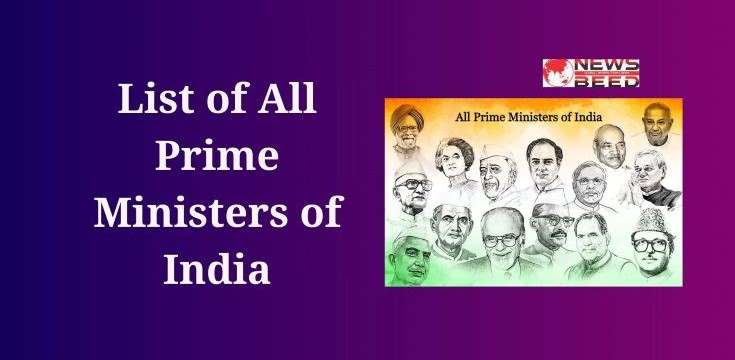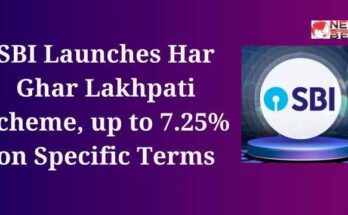The Prime Minister of India is the chief executive of the world’s largest democracy. This prestigious position is pivotal in guiding the nation’s political and administrative affairs. Since India gained independence in 1947, it has seen a succession of Prime Ministers who have played crucial roles in shaping the country’s destiny. These leaders have varied in their ideologies, strategies, and contributions, but each has left an indelible mark on the nation’s history.
List of All Prime Ministers of India
Here is a list of all the Prime Ministers of India up to that date, along with some details about their respective terms in office:
| Prime Minister | Term in Office | Political Party |
|---|---|---|
| Jawaharlal Nehru | August 15, 1947 – May 27, 1964 | Indian National Congress |
| Gulzarilal Nanda (acting) | May 27, 1964 – June 9, 1964 | Indian National Congress |
| Lal Bahadur Shastri | June 9, 1964 – January 11, 1966 | Indian National Congress |
| Gulzarilal Nanda (acting) | January 11, 1966 – January 24, 1966 | Indian National Congress |
| Indira Gandhi | January 24, 1966 – March 24, 1977 | Indian National Congress |
| Morarji Desai | March 24, 1977 – July 28, 1979 | Janata Party |
| Charan Singh | July 28, 1979 – January 14, 1980 | Janata Party |
| Indira Gandhi (2nd term) | January 14, 1980 – October 31, 1984 | Indian National Congress |
| Rajiv Gandhi | October 31, 1984 – December 2, 1989 | Indian National Congress |
| Vishwanath Pratap Singh | December 2, 1989 – November 10, 1990 | Janata Dal |
| Chandra Shekhar | November 10, 1990 – June 21, 1991 | Samajwadi Janata Party (Rashtriya) |
| P. V. Narasimha Rao | June 21, 1991 – May 16, 1996 | Indian National Congress |
| Atal Bihari Vajpayee | May 16, 1996 – June 1, 1996 | Bharatiya Janata Party |
| H. D. Deve Gowda | June 1, 1996 – April 21, 1997 | Janata Dal (Secular) |
| Inder Kumar Gujral | April 21, 1997 – March 19, 1998 | Janata Dal |
| Atal Bihari Vajpayee (2nd term) | March 19, 1998 – May 22, 2004 | Bharatiya Janata Party |
| Manmohan Singh | May 22, 2004 – May 26, 2014 | Indian National Congress |
| Narendra Modi | May 26, 2014 – Present | Bharatiya Janata Party |
Also, Read This: What is Digital Marketing in Hindi
All Prime Ministers of India
Jawaharlal Nehru (15 August 1947 – 27 May 1964):
- Jawaharlal Nehru was the first Prime Minister of India and a prominent leader in the Indian independence movement.
- He served as Prime Minister for three consecutive terms.
- Nehru played a crucial role in shaping India’s foreign policy and was known for his vision of a secular and socialist India.
Gulzarilal Nanda (acting) (27 May 1964 – 9 June 1964):
- Gulzarilal Nanda served as the acting Prime Minister twice in the interregnum periods after the deaths of Jawaharlal Nehru and Lal Bahadur Shastri.
Lal Bahadur Shastri (9 June 1964 – 11 January 1966):
- Lal Bahadur Shastri was the second Prime Minister of India.
- His tenure saw India’s involvement in the Indo-Pak War of 1965, which resulted in the Tashkent Agreement, aimed at restoring peace between the two countries.
Gulzarilal Nanda (acting) (11 January 1966 – 24 January 1966):
- Gulzarilal Nanda again served as the acting Prime Minister in the interim period after the death of Lal Bahadur Shastri.
Indira Gandhi (24 January 1966 – 24 March 1977):
- Indira Gandhi, the daughter of Jawaharlal Nehru, was the first woman to hold the office of Prime Minister in India.
- Her first term witnessed the Green Revolution, nationalization of banks, and significant developments in foreign policy.
- She declared a state of emergency in 1975, suspending democratic rights, which led to her defeat in the 1977 general elections.
Morarji Desai (24 March 1977 – 28 July 1979):
- Morarji Desai was the first non-Congress Prime Minister of India.
- He led the Janata Party alliance to victory in the 1977 elections.
- His tenure is known for economic reforms and improved relations with the United States.
Charan Singh (28 July 1979 – 14 January 1980):
- Charan Singh’s term as Prime Minister was brief.
- His government was primarily focused on agricultural and rural development.
Indira Gandhi (14 January 1980 – 31 October 1984):
- Indira Gandhi returned to power in 1980, leading the Congress (I) party.
- Her second term saw significant developments in foreign policy and the Operation Blue Star military operation in the Golden Temple complex in Amritsar.
Rajiv Gandhi (31 October 1984 – 2 December 1989):
- Rajiv Gandhi succeeded his mother, Indira Gandhi, as Prime Minister after her assassination.
- His term saw economic liberalization and modernization efforts.
Vishwanath Pratap Singh (2 December 1989 – 10 November 1990):
- Vishwanath Pratap Singh led the National Front coalition and is known for implementing the Mandal Commission recommendations for reservations in government jobs.
Chandra Shekhar (10 November 1990 – 21 June 1991):
- Chandra Shekhar’s tenure was short, and he served as a caretaker Prime Minister.
P. V. Narasimha Rao (21 June 1991 – 16 May 1996):
- P. V. Narasimha Rao initiated economic reforms and liberalization policies.
- His term saw significant changes in India’s economic and foreign policies.
Atal Bihari Vajpayee (16 May 1996 – 1 June 1996, 19 March 1998 – 22 May 2004):
- Atal Bihari Vajpayee served three non-consecutive terms as Prime Minister.
- He was a prominent leader of the Bharatiya Janata Party (BJP) and played a key role in India’s nuclear tests in 1998.
H. D. Deve Gowda (1 June 1996 – 21 April 1997):
- H. D. Deve Gowda was the first Prime Minister from the state of Karnataka.
Inder Kumar Gujral (21 April 1997 – 19 March 1998):
- Inder Kumar Gujral’s government followed a policy of improving relations with neighboring countries.
Manmohan Singh (22 May 2004 – 26 May 2014):
- Manmohan Singh served two consecutive terms as Prime Minister.
- His tenure focused on economic growth and development, though it faced criticism on issues of corruption and governance.
Also, Read This: What is SEO? Type and Key Factors of SEO
Narendra Modi (26 May 2014 – present, as of my last update in September 2021):
- Narendra Modi is the current Prime Minister of India and the leader of the Bharatiya Janata Party (BJP).
- His tenure has seen initiatives like “Make in India,” “Swachh Bharat Abhiyan,” and the “Digital India” campaign.
Conclusion
India has had a diverse range of Prime Ministers since gaining independence in 1947. From Jawaharlal Nehru, the country’s first Prime Minister, to leaders like Indira Gandhi, Atal Bihari Vajpayee, and Narendra Modi, each has left their mark on India’s political landscape. These leaders have navigated through complex challenges, shaped economic policies, and steered the nation’s foreign relations. While their legacies may vary, collectively, they have played crucial roles in shaping modern India and its place on the global stage.





This is an remarkable article of content! The author’s thorough knowledge of the topic is clear throughout the article.
The clear and concise explanations, coupled with substantiating examples, make complex notions easy to
grasp. I admire the extensive study that went into this article,
as it provides a solid groundwork for the claims presented.
The author’s way of writing is compelling and keeps the audience engaged until the very end.
I was impressed by the flawless transition between thoughts and the coherent structure of the article.
The author’s aptitude to present sophisticated arguments and provide stimulating insights is commendable.
It’s apparent that a tremendous amount of work and knowledge
went into creating this outstanding write-up. I strongly
recommend it to anyone looking for a expertly executed and informative article.
Thank You…